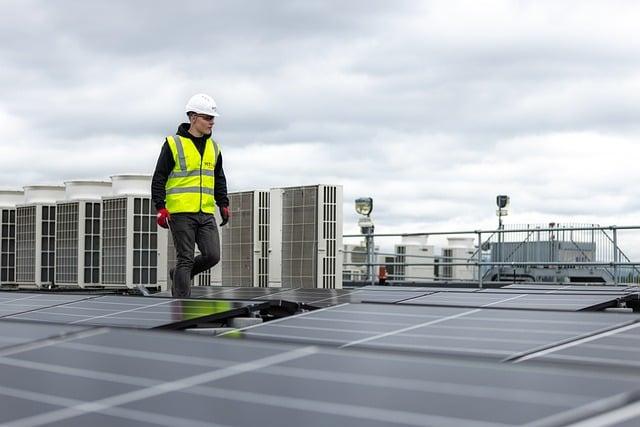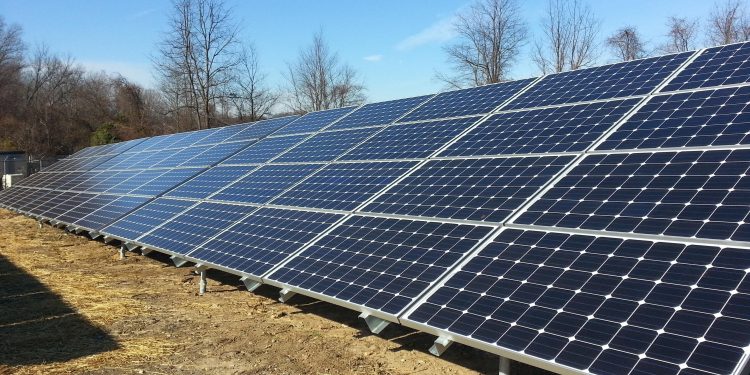In an era where the sun’s rays are increasingly being harnessed as a vital source of clean energy, the question of how best to regulate the burgeoning solar market has become a topic of intense debate. As the world pivots towards sustainability, governments are faced with the challenge of balancing innovation and environmental responsibility. On one hand, the solar industry represents a beacon of hope in the fight against climate change, promising a future of reduced carbon emissions and energy independence. On the other, the rapid expansion of this market raises concerns about potential monopolies, environmental impacts of production, and equitable access to solar technology. Should governments step in to ensure that the solar energy sector develops in a manner that is both fair and sustainable, or would stringent regulations stifle the very innovation needed to propel us into a greener future? This article delves into the complexities of solar market regulation, exploring the arguments for and against increased governmental oversight in this critical area of energy transformation.
Balancing Innovation and Oversight in Solar Energy
In the rapidly evolving landscape of solar energy, the quest for innovation must be delicately balanced with oversight to ensure sustainable growth. The relentless drive for technological advancements in solar power has the potential to revolutionize our energy systems, but without appropriate regulatory frameworks, it could lead to unforeseen consequences. Key areas of concern include:
- Environmental Impact: While solar panels are a clean energy source, their production and disposal can pose environmental risks.
- Market Monopolies: A lack of oversight could allow dominant players to stifle competition, inhibiting innovation and fair pricing.
- Consumer Protection: Ensuring transparency and fairness in pricing and service delivery is crucial as more households adopt solar solutions.
Governments must find a way to foster an environment where innovation thrives but does not come at the cost of public interest. By implementing thoughtful regulations, they can create a fertile ground for the solar industry to flourish, while safeguarding the environment and protecting consumers.

Navigating Economic Impacts of Stricter Solar Regulations
In the complex dance of policy-making, the solar energy sector finds itself at a pivotal juncture. Stricter regulations could reshape the landscape, prompting both challenges and opportunities. Economic impacts are a central consideration for stakeholders, as tighter controls might initially slow down project approvals, impacting timelines and cost structures. However, these regulations could also lead to long-term stability by ensuring quality and safety standards are upheld, fostering trust among investors and consumers alike.
For businesses navigating these changes, a few strategies can be pivotal:
- Diversification of investments: Broadening the portfolio to include a mix of solar technologies and regions can mitigate risks.
- Innovation in compliance: Leveraging new technologies to meet regulatory demands can turn a challenge into a competitive advantage.
- Collaboration with regulators: Engaging in dialogue with policy-makers can help shape regulations that support sustainable growth.
Ultimately, while the road ahead may seem daunting, these shifts could lead to a more robust and reliable solar energy market.
Environmental Benefits and Challenges of Increased Regulation
Increased regulation in the solar energy market offers a spectrum of environmental benefits that could significantly enhance sustainability efforts. Stringent policies can ensure that solar panel production and disposal adhere to environmentally friendly standards, minimizing the carbon footprint associated with their lifecycle. Additionally, regulations could encourage the development of more efficient solar technologies, promoting innovation and reducing the ecological impact of energy production. Mandatory recycling programs for solar panels could be implemented, ensuring that valuable materials are reused, thus reducing waste and conserving natural resources.
However, these regulations also present a set of challenges. Increased costs associated with compliance might discourage small companies from entering the market, potentially stifling competition and innovation. Moreover, the rapid pace of technological advancement in the sector could make regulations quickly outdated, necessitating frequent revisions that could create a regulatory burden. Bureaucratic delays might also slow down the deployment of solar projects, hindering the transition to renewable energy. Balancing the need for environmental protection with the dynamism required for technological growth remains a critical consideration for policymakers.

Crafting Effective Policies for a Sustainable Solar Future
In the quest for a sustainable solar future, crafting effective policies requires a delicate balance between regulation and innovation. Governments face the challenge of ensuring that the solar energy market thrives while maintaining environmental and economic integrity. Stricter regulations could provide numerous benefits, such as:
- Ensuring high-quality solar installations that meet safety and efficiency standards.
- Protecting consumers from potential exploitation in an expanding market.
- Promoting fair competition by setting a level playing field for all market participants.
However, over-regulation could stifle the very innovation that drives the solar industry forward. Excessive bureaucratic hurdles might discourage investment and slow down the adoption of solar technologies. Therefore, policymakers must engage with stakeholders to craft rules that not only protect the environment and consumers but also foster technological advancement and market growth. Finding this equilibrium is crucial for a sustainable future that embraces solar power as a cornerstone of global energy strategy.
Future Outlook
As the sun dips below the horizon, casting a final golden glow over the landscape, the debate surrounding the regulation of the solar energy market remains vibrant and full of potential. Like the celestial body it harnesses, the solar industry is ever-evolving, its future shaped by both innovation and governance. Whether more stringent regulations will act as a guiding compass or an obstructive cloud is a question that continues to stir both policymakers and the public alike.
Ultimately, the path we choose will illuminate not just our rooftops, but also the values we hold dear—be it environmental stewardship, economic growth, or equitable access to renewable resources. As we stand at this pivotal crossroads, one thing is certain: the dialogue between industry stakeholders, governments, and citizens must remain as dynamic and adaptive as the technology itself. Only through thoughtful consideration and collaborative effort can we ensure that the solar energy market shines brightly for generations to come, lighting the way to a sustainable future.


































